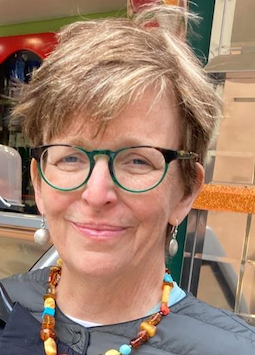Gaza Mental Health Conference: Living Through the Unimaginable

Siobhan Bryant
On Saturday, 8th November, I attended the Gaza Day Conference: A Mental Health Conference for Palestine - Living Through the Unimaginable: Witnessing and Responding to the Genocide in Gaza. The event, organised by Psychoanalytic Voices for Palestine, took place at Birkbeck, University of London.
We heard from Dr Yasser Abu Jamei, Director General of the Gaza Community Mental Health Program, who asked the profound question: "How do you provide mental health care during a genocide?" His answer was both defiant and compassionate: "You do it by refusing to accept that any people deserve to live this way." He reminded us that Palestinians are not resilient by choice - they are resilient because they have no other option.
The Palestinian speakers conveyed that without a true ceasefire, psychological healing remains impossible. People in Gaza continue to live in a constant state of fear, unable to begin processing their trauma while the violence persists.
The atmosphere in the conference room was deeply emotional; many participants were moved to tears as we confronted the psychological reality of life under genocide. To label this collective experience as Post-Traumatic Stress Disorder (PTSD) would be neither accurate nor respectful - as one speaker said: "The experience of genocide is beyond words."
Part of the discussion centred on language and silence - on how silence can carry different meanings, and how, even though the Arabic language has over 20 million words, there are no words to truly describe what has happened in Gaza.
Dr Yoa'd Chanadry, author of Palestine: Colonized Lands, Decolonized Minds - Narratives of Trauma and Recovery, showed a photograph of piles of rubbish accumulating in Nazareth, commenting that: "Nazareth has become the dirtiest city within the 1948 borders." The remark was particularly striking given that Nazareth is the birthplace of Jesus, a city now struggling under the weight of neglect and occupation.
In the afternoon, a social worker of Pakistani and Muslim heritage from London presented a powerful paper titled: 'Silencing in the NHS: A Personal Account of Being Disciplined for Speaking Out About Genocide.' As a mental health nurse working within the NHS, I found this account both shocking and deeply concerning - especially for clinicians who feel an ethical duty to speak out against injustice. The ensuing discussion included a collective plea: "We must decolonise our professions."
As the conference drew to a close, one speaker recited the famous poem by Friedrich Gustav Emil Martin Niemöller, the German Lutheran pastor and theologian:
First they came for the Communists
And I did not speak out
Because I was not a Communist
Then they came for the Socialists
And I did not speak out
Because I was not a Socialist
Then they came for the trade unionists
And I did not speak out
Because I was not a trade unionist
Then they came for the Jews
And I did not speak out
Because I was not a Jew
Then they came for me
And there was no one left
To speak out for me.
At a time when words often fail, psychoanalysis offers a space to think, to feel, and to bear witness - to hold what is unbearable without turning away. It reminds us that the work of listening, of making meaning from pain, is itself an act of resistance and humanity. In facing the unimaginable, psychoanalysis helps us stay human.
Leaving the conference, I felt a deep sense of urgency - a recognition that silence, in the face of such suffering, is itself a form of complicity.
Siobhan Bryant is a Registered Mental Health Nurse and Psychodynamic Counsellor. She has many years of experience working within the NHS and currently works in a specialist therapeutic community hospital in London.
LINK
Psychoanalytic Voices for Palestine: https://ukpalmhn.com/pvp/

















